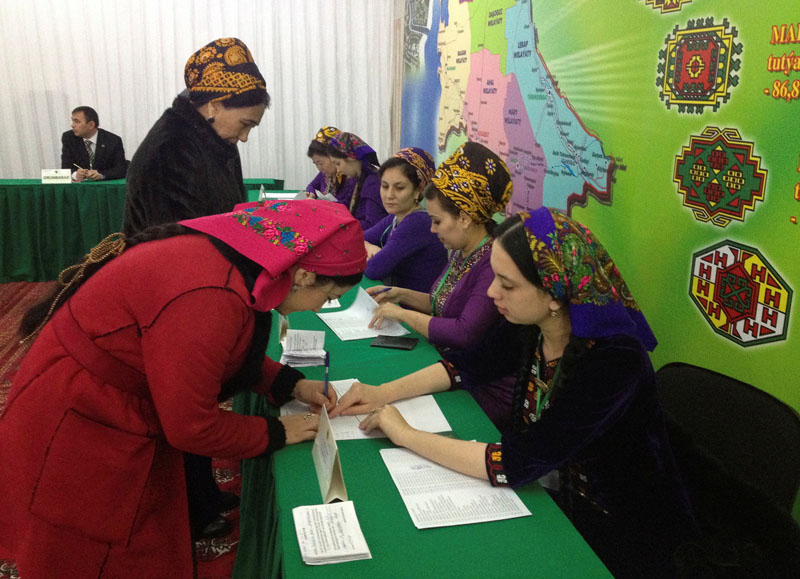Turkmenistan leader certain to win third term in vote
ASHGABAT: Turkmen leader Kurbanguly Berdymukhamedov is certain to secure a third term in office in Sunday's presidential election, maintaining his grip on power in the isolated gas-rich nation.
Berdymukhamedov, 59, has run the former Soviet republic of five million people with an iron fist for a decade after succeeding equally autocratic president-for-life Saparmurat Niyazov who died in 2006.
Berdymukhamedov, a dentist by training, has kept in place Niyazov's repressive political system which tolerates no political opposition or public expressions of discontent, while refocusing his predecessor's elaborate personality cult on himself.
While Niyazov was known as Turkmenbashi, the head of all Turkmen, Berdymukhamedov is often referred to as Arkadag, the protector. Gilded statues of both leaders have been erected in Ashgabat, the capital city.
Berdymukhamedov cast his ballot at a downtown polling station after arriving with his family, including his son Serdar who last year became a member of parliament after winning a by-election.
"Turkmenistan's goal is joining the ranks of the industrially developed nations," Berdymukhamedov told reporters, adding that all candidates had had equal opportunities in the election campaign.
Running against Berdymukhamedov are eight other candidates, all of them public servants, managers of state-owned companies or nominees of political parties completely loyal to the government. In the previous election in 2012, Berdymukhamedov won 97 percent of the vote.
Turkmenistan has no election threshold, but by 1100 local time (0600 GMT), 51.45 percent of voters had already cast their ballots, the Central Election Commission said.
Last year, Turkmenistan amended its constitution in a way that could allow Berdymukhamedov to stay in power indefinitely, removing the 70-year age limit for presidential candidates and extending the presidential term to seven years from five.
This consolidation of power has been taking place against a background of slowing economic growth and shortages of foreign currency due to Russia's decision to halt imports of Turkmen gas, Ashgabat's main source of export revenue.
Moscow had long been the main buyer of Turkmen gas and sales to China, although significant, have not completely offset the loss of Russian money flows.
Faced with budget deficits after years of surpluses, the authorities are considering scaling down a generous welfare system which includes free gasoline rations.
Amid the gas row, Turkmenistan has also flatly rejected the idea of Russia providing military assistance to the Central Asian nations in the light of escalating violence in neighbouring Afghanistan; it has also vehemently denied claims of violent incidents at the Afghan border.






